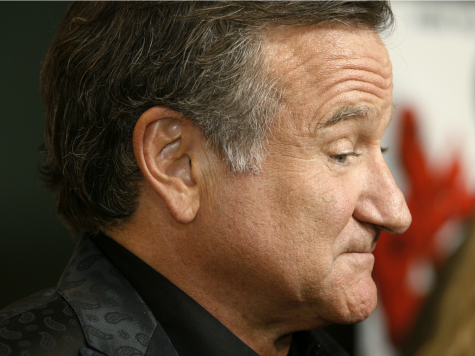On March 2, on the Red Carpet outside the Dolby Theatre in Hollywood where the Oscars were about to begin, I asked the President of the Academy of Motion Picture Arts and Sciences if the community could do anything to help tortured souls like Philip Seymour Hoffman who had died a month earlier.
President Cheryl Boone Isaacs looked at me like I was Mork from Ork, brushing off my question, her thoughts blaring, “What a question?”
As we mourn the loss of yet another Oscar-winning talent, Robin Williams, I ask the same question–to anyone in Hollywood who will listen.
It’s a question I’ve been pondering the last several months as I’ve labored over Oasis: Conversion Stories of Hollywood Legends, being published in April 2015. It tells the stories of 15 legends, some of whom were the most tortured, complex, and talented–who, through healing, recovery and conversion, managed to beat their demons.
Unlike Williams, Philip Seymour Hoffman, Chris Farley, John Belushi … Judy Garland, Marilyn Monroe, Margaret Sullavan (The Shop Around the Corner)… Florence Lawrence, the first real Biograph “star” in the early 1900s before Mary Pickford eclipsed her in 1909. She committed suicide in 1938 by eating ant paste.
What was it, Robin?
Might Sir Alec Guinness have identified a part of it in his 1985 autobiography, Blessings in Disguise?–when he wrote, “An actor is usually no more than an assortment of odds and ends which barely add up to a whole man. An actor is an interpreter of other man’s words, a soul which wishes to reveal itself to the world but dare not, a craftsman, a bag of tricks, a vanity bag, a cool observer of mankind, a child, and at his best a kind of unfrocked priest who, for an hour or two, can call on heaven and hell to mesmerize a group of innocents.”
I can see Williams laughing and shaking his head in agreement.
We enjoyed Williams’ mesmerizing hour or two, but now know, with tragic finality, that outside of that time performing–mesmerizing–he suffered the dark side of the theater.
“Theater can be a very horrible, cruel place,” Sullavan said shortly before her death on New Year’s Day 1960.
Williams, it seems, was wishing to reveal himself–until finally, he did, in a tragic final act.
Hollywood supports its talent in celebrating the high points. Why not be there in the low points–understanding and helping them? It’s only right. Actors have helped all of us understand ourselves through their art, of which, Spencer Tracy, perhaps the most troubled of all, said, “I hope pictures will tell the whole truth of life.”
A truth, that Hollywood needs desperately to start telling itself.

COMMENTS
Please let us know if you're having issues with commenting.